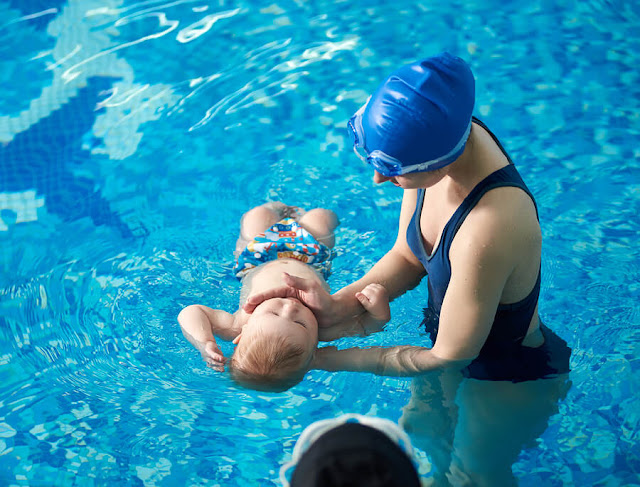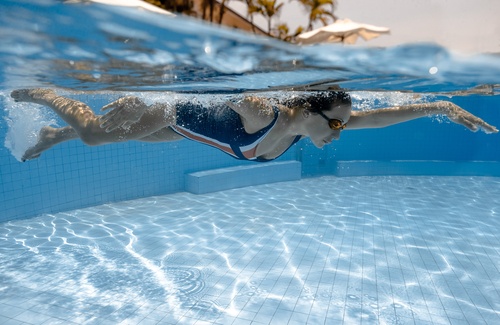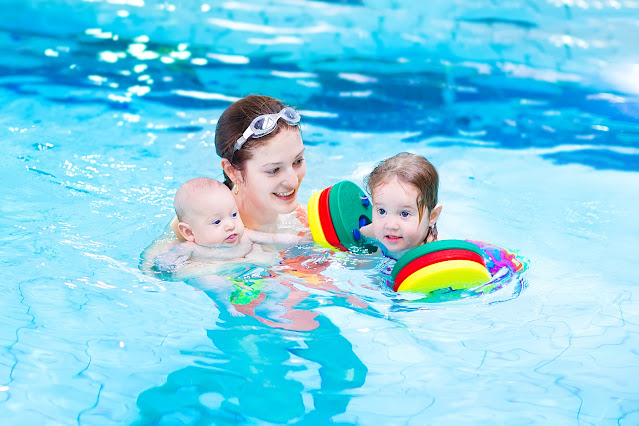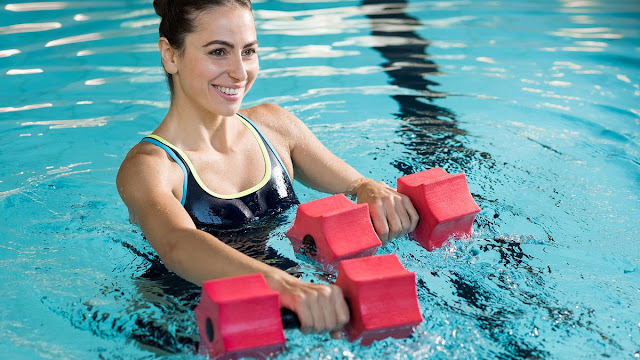Discover the benefits of swimming for our health and well-being
Did you know that swimming is a traditional Olympic discipline that was also part of the first edition of the modern Olympic Games, Athens 1896? And that it has seventeen variants, in addition to including women's competitions since 1912? What you surely know is that swimming is considered the most complete sport of all and highly recommended for our health and well-being due to the benefits of swimming in our lives with lifeguard class.
Regardless of whether you practice it at a professional or amateur level, swimming is an aerobic exercise that is performed in a lower-pressure environment. The ideal environment to recover injuries and increase our well-being. In this way, practicing swimming positively affects our health and improves our quality of life.
Interestingly, swimming is one of the few that can be done at any stage of life. Of course, we must take certain precautions to practice swimming safely.
Swimming, the sport of (and for) life
Swimming is based on the ability to stay afloat through our movement. This means that it is a sport that requires both endurance and strength. Although it is true, the technique is the most important quality, since it will make our movements more efficient and agile.
The technique of this discipline takes time to learn because our body is seen in an environment that is not natural for human beings. That is why while surface activities are easier to internalize, swimming has a higher learning curve.
Why swim? Benefits of swimming for our health
Swimming, being a complete aerobic sport that is performed in an unconventional environment, influences us in certain aspects. The first of these is concentration. Holding our breath and coordinating our movements to float insulates us from problems.
It also reduces stress and, consequently, improves our mood and self-esteem. In addition to this, it helps us to strengthen the body or correct posture, among other benefits of swimming for a healthy life.
As for its practice, pregnant women, babies, and elderly people or with some motor problem, will be able to exercise thanks to the lower gravity in the water.
Objectives when practicing swimming: the most complete sport of all and for our well-being
The main objective is well-being, like any sport within an active life. Although, thanks to its unique characteristics, swimming offers us other goals appropriate to our level and needs. These will define our training and the diet that we must follow. Here are the most common:
- Formative: learning;
- Recovery: to overcome an injury;
- Keep fit: lose weight or tone the body;
- Relaxation: to relieve stress and improve our well-being,
- competitive.
- Physical aspects to practice swimming and have a healthy life
Force
Strength is an important aspect of swimming when it comes to diving and kicking. This, in line with the technique, will increase our resistance. Movement efficiency is essential for this.
Of course, we can increase strength based on a greater intensity of training, the use of weights, or visiting the gym. The diet also contributes to building muscle tissue. To do this, it must be based on carbohydrates and proteins, without forgetting foods rich in iron.
Resistance
Resistance, as in other sports, is achieved through practice. As it is a different medium, running more will not ensure great endurance in the water. The movement of the muscles and the relationship with the environment varies so much that our body must adapt. In this way, the way to increase resistance in our swimming sessions is to take care of breathing, have a good technique, and have a balanced diet.
Breathing
As in any sport, the coordination of breathing with exercise is vital for its development. In addition, it directly influences the resistance, so it should be controlled correctly inside and outside the glass. To do this, we can follow some basic guidelines:
- Take a deep breath when your head is on the surface and release your breath underwater;
- Inhale through the mouth, exhale through the nose.
- Don't go crazy turning your head. It is best to create a comfortable and organic movement 'routine'.
- Live an active life while swimming safely
Although swimming is a friendlier sport with our muscles and joints, it still requires strength and endurance. That is why we have to take into account some basic precepts before jumping into the pool.
Tips to consider
Before commenting on swimming, we must take into account our physical condition. In other words, knowing our body and its limits is essential for any sport and it does not take its toll on our health and well-being. This will determine the time and the exercises that we must perform. It will also mark our progression.
Another factor to take into account is the ideal temperature of the water, which will vary according to our age. Likewise, we must not neglect our hygiene or the basic equipment that should accompany us in our bag:
- swimsuit ;
- cap ;
- flip flops ;
- towel _
- Places
Be it summer or winter, we can always swim. Of course, to avoid the dreaded and hated crowds that prevent us from practicing swimming, we must choose a good time and suitable places. We have our 7 best indoor pools in Spain for swimming.
Heating
Although the intensity of the warm-up will depend on whether we swim professionally or as an amateur, there are certain basic aspects that we must always carry out. If they are not carried out, the benefits of swimming for our health will become a setback with the appearance of injuries:






Comments
Post a Comment